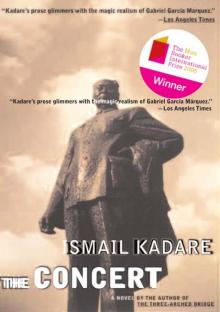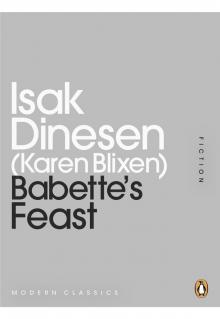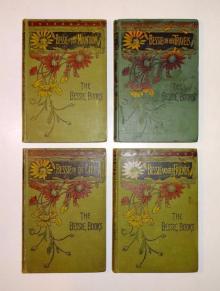A glimpse into the melting pot of reputations and rumours in the twilight years of communism in Albania, as the morning's orthodoxies become heresies by dinner-time, and everyone must step nimbly to keep out of jail. The fragile nature of political realities in present-day China too, is summed up.From Publishers WeeklySet in the mid-1970s, as the alliance between Albania and Communist China unravels, this subversively inventive satire traces the impact of the zigzagging Albanian party line on the personal lives of a group of friends and associates. These include a jittery Albanian diplomat in Beijing, his jealously insecure wife, an establishment novelist who confronts "the void inside him" and a civil servant who writes an "autocritique" castigating himself for his petty-bourgeois mentality. A Kafkaesque subplot concerns an army officer who's arrested, apparently for refusing to obey an order. Albanian novelist Kadare ( The Palace of Dreams ), who lives in France, sketches a devastating portrait of Mao Zedong as a megalomaniac whose goal is "the brainwashing of the human race." Historical figures like Zhou Enlai and genocidal Cambodian leader Pol Pot appear intermittently in an elliptic narrative spliced with dreams, officers' coerced confessions and short-short stories. China, depicted as a dystopia where simple human relations are stultified and surveillance is a way of life, becomes a mirror image of Albania through Kadare's mordantly ironic vision. Copyright 1994 Reed Business Information, Inc. From Library JournalUnder communism, foreign relations between a smaller country and the huge country that serves as its "host" affect the day-to-day lives of many individuals, especially in the smaller country. An Albanian by birth now living in France, Kadare (The Palace of Dreams, LJ 9/1/93) shows how Albania's relationship with China affects the life of Silva Dibra, a government employee, wife, and mother. The endless succession of her days seem to blend together as Silva worries about her husband, Gjergi, who makes sudden and frequent trips to China, and her brother, Arian, who is in the military. She also thinks constantly about her dead sister, Ana. Through Silva, we learn the thoughts of too many other characters: her husband, daughter, brother, co-workers, endless friends, Chairman Mao, Zhou En-lai, and a stream of other Chinese bureaucrats. There are some good, funny ideas here, and a number of chapters would work effectively as short stories. Strung together, however, they create what is essentially a plotless novel that strains the reader's interest.Olivia Opello, Onondaga Cty. PL, Syracuse, N.Y.Copyright 1994 Reed Business Information, Inc.

 Henry Esmond; The English Humourists; The Four Georges
Henry Esmond; The English Humourists; The Four Georges Babette's Feast
Babette's Feast Children Under the Stars
Children Under the Stars Captain's Fury (Codex Alera 4)
Captain's Fury (Codex Alera 4) In the Wet
In the Wet Dick Donnelly of the Paratroops
Dick Donnelly of the Paratroops Bessie in the City
Bessie in the City Mixed Signals
Mixed Signals